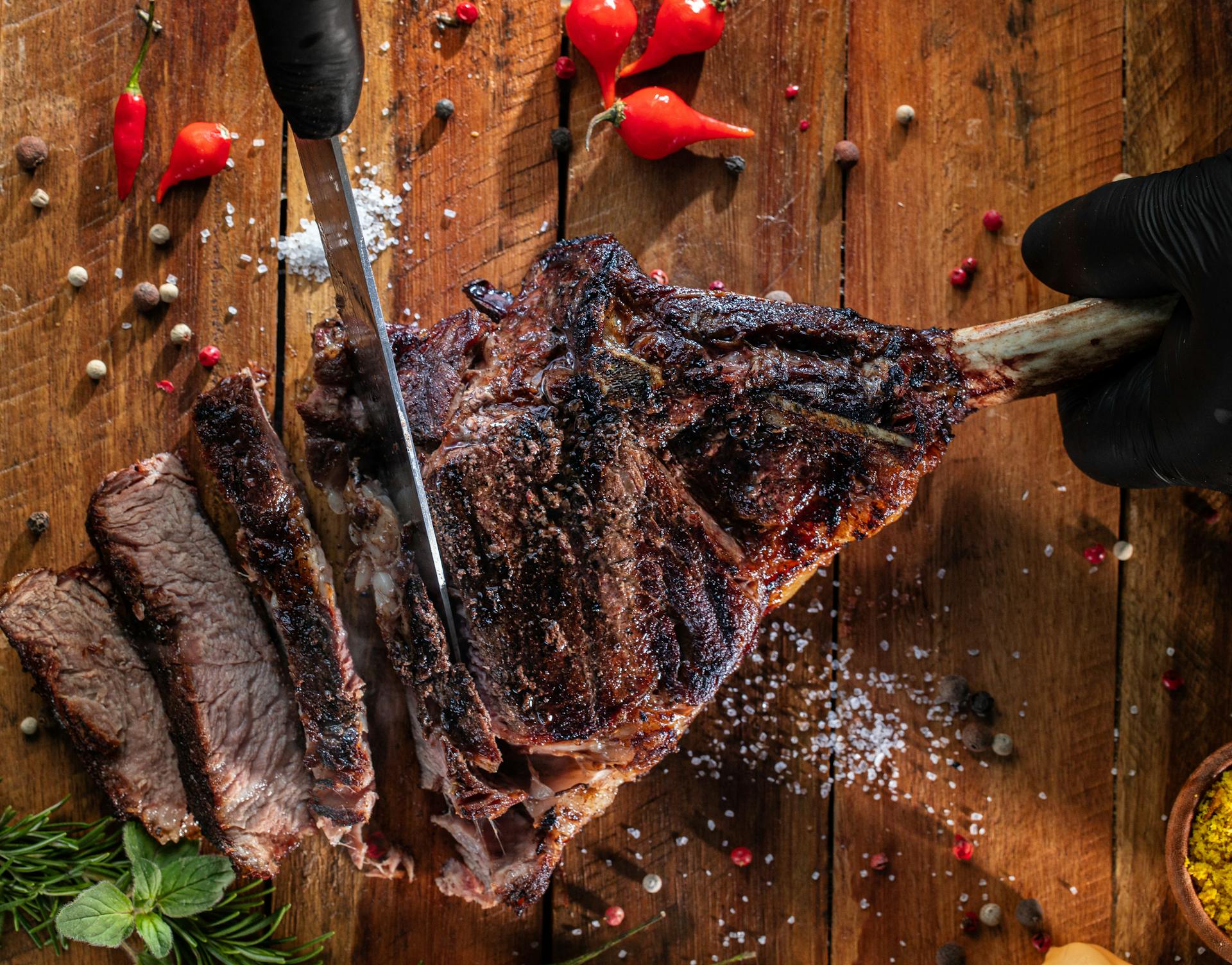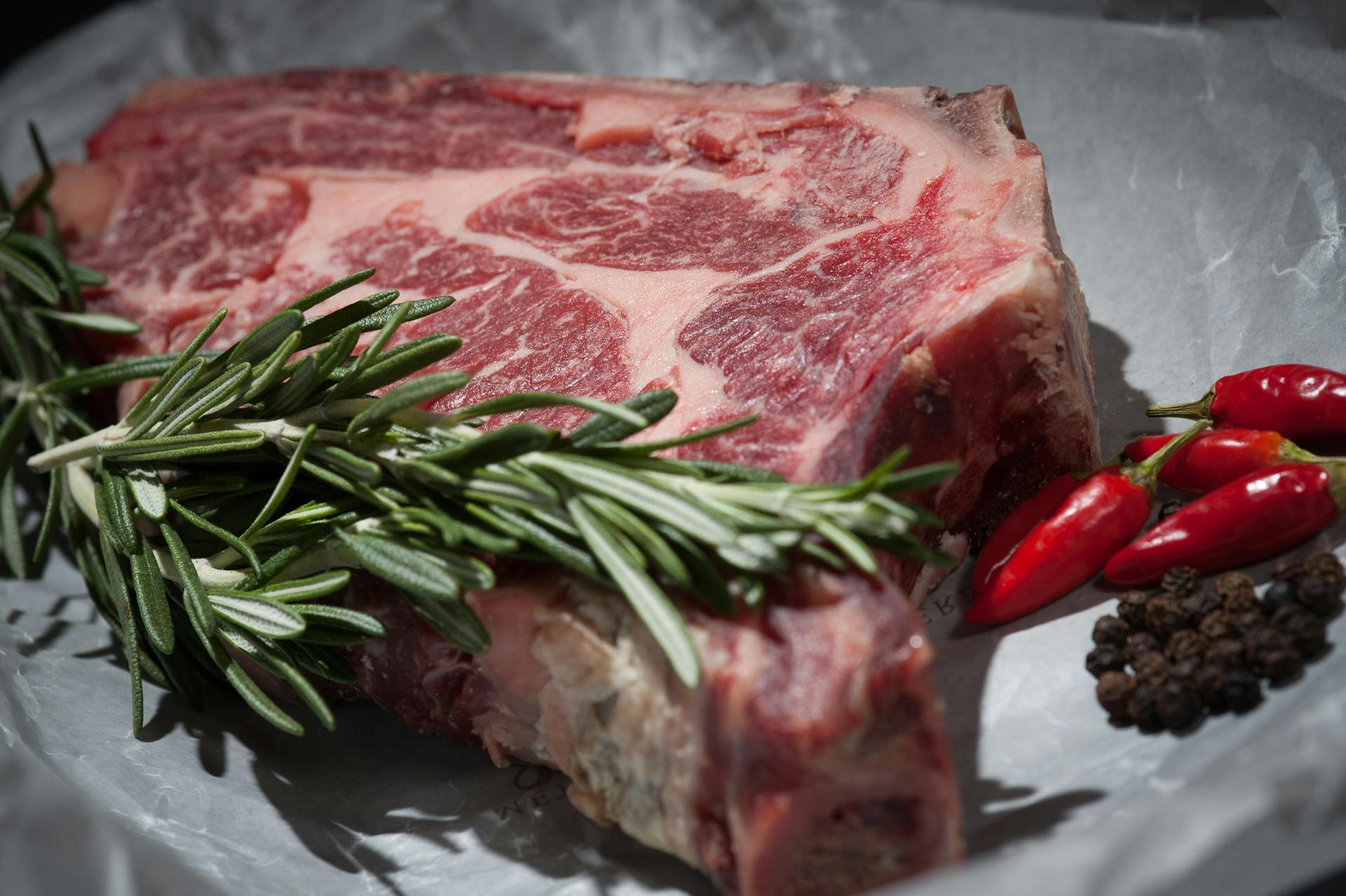
If you’re trying to watch your calorie intake, it’s important to know how many calories there are in the foods you eat. It turns out that the answer to this question can depend on several factors, like the type of turkey lunch meat and how thickly it is sliced.
A general rule of thumb is that one slice of smoked turkey lunch meat contains around 35–40 calories. Keep in mind, however, that turkey lunch meat also typically contains added sodium and may be processed with preservatives depending on the brand.
If you opt for white oven roasted turkey lunch meat instead, which generally contains fewer preservatives and added salt than smoked varieties, then one slice can contain closer to 25-30 calories. It all comes down to the type of turkey lunch meat used and how thickly it's sliced!
Ultimately, if calorie tracking is important for you then make sure check your nutrition labels carefully before buying – this way you'll get an exact understanding of what goes into each individual product so don't miss out on making healthier eating choices.
Curious to learn more? Check out: Buy Montreal Smoked Meat
How much sodium is in one slice of turkey lunch meat?
People have been looking to eat healthier, including keeping track of the amount of sodium they consume. If you’re a health-conscious individual and you’re looking for lunch meats, turkey can be a good choice but how much sodium is in one slice of turkey lunch meat?
The amount of sodium in one slice of turkey lunch meat can vary depending on the brand and type. Generally, most brands serve 3–5 grams or approximately 55–90 milligrams per 1 ounce slice. The American Heart Association recommends no more than 2,300 milligrams (approximately 1 teaspoon) of dietary sodium per day. So if you’re eating two slices at once, then that's around 100-180 mg of additional sodium right there!
But fear not! Many brands now offer low-sodium or no added salt versions to help keep your daily intake below those recommended levels. To make sure that you are getting the best option for your health goals, it's always important to read food packaging labels and compare different types so that you know exactly what is included in each product.
Although consuming these types of sandwich meats should still be done in moderation with all other dietary components taken into account when planning out a healthy diet plan, including sliced turkey as part as part your weekly meal plans can contribute significantly towards reaching your health goals without adding too much extra salt into your diet – just remember to read those labels!
Intriguing read: Ham Lunch Meat
How many grams of fat are in one slice of turkey lunch meat?
The amount of fat in a single slice of turkey lunch meat can vary wildly depending on the cut, brand, and preparation. Generally speaking, however, one slice of regular deli-style turkey lunch meat contains around 2-4 grams of fat. But some brands may have less than 1 gram or more than 5 grams per serving. For instance, pressed turkey breast slices tend to contain less fat than white meat roast slices since they are primarily made from leaner cuts. If you are looking for lower-fat options in your lunch meals, look for labels that include "low fat" or "no added fat." Prepared sandwiches at local delis may also contain higher amounts of fats due to added sauces and condiments like mayonnaise or full-fat cheese. To ensure you are obtaining the lowest possible amount of trans fats from your meal choices try opting for low sodium versions without any additional toppings such as bacon or sausage. Considering the varying factors involved when it comes to choosing healthy and delicious lunch meats it's important to pay attention to nutritional label information before making a selection!
Discover more: 2 Slices
What is the carbohydrate content of one slice of turkey lunch meat?
If you’ve been cutting out carbohydrates from your diet and still crave the taste of a classic turkey sandwich, you might be wondering what the carbohydrate content of one slice of turkey lunch meat is. The good news is—one slice has zero carbs!
Sliced turkey lunch meat does not have any carbohydrates because it comes from lean cuts of poultry that have no sugar or starch content. This means that if you’re avoiding carbs or just trying to watch what goes into your meals, adding a few slices of lean sliced turkey-breast-meat with some other low carb dishes can make for an excellent meal.
This delicious lunchmeat is also rich in protein, making it an excellent choice for those living an active lifestyle as well as people who are looking to build muscle mass. Turkey also contains many essential amino acids and vitamins such as B6 and niacin which can help promote overall health. Additionally, its low fat content makes it one of the healthier ways to add flavor to your sandwiches without worrying about saturated fats or cholesterol levels found in other luncheon meats like bacon or salami.
Overall, whether you are following a specific diet plan or just trying to up the nutritional value of your meals - turkey lunch meat should definitely be on the menu! It is healthy and very tasty with zero carbs!
How much protein is in one slice of turkey lunch meat?
The amount of protein found in one slice of turkey lunch meat can vary compared to other slices. Depending on how thickly it’s sliced, the nutrition facts may also change slightly. Generally, though, you can expect to get 2-3 grams of protein in one ounce or 28g (1/4 cup) of sliced turkey meat. That translates roughly into 4-5 grams per slice when pre-packed luncheon meats are being used.
Of course, there are many different types of turkey lunch meat available on store shelves that contain added ingredients that can alter their nutritional makeup. For example, low-fat or no nitrates varieties will have less fat but more water and thus a slightly lower protein content than regular deli meats. Similarly, some turkey lunchmeat is blended with other proteins such as pork for extra flavor which will affect the amount of protein you're getting from each slice too!
It's important to check labels before making your purchase so that you know exactly what you're getting from your food and how much nutrition it has. With all these factors taken into consideration though, it's safe to say that one typical slice ofturkey lunch meat contains around 5grams of protein - an excellent source for vegetarians who need some alternatives sources of protien in their diet!
A unique perspective: 4 Scrambled Eggs
What are the vitamin and mineral contents of one slice of turkey lunch meat?
Lunch meat, such as turkey, is a tasty and convenient way to get protein into your daily diet. But beyond its protein content, turkey lunch meat can also provide your body with several essential vitamins and minerals. One slice of turkey lunch meat typically contains small amounts of Vitamin A, B-complex Vitamins (B1, B2, B3 and B6), Vitamin E, Calcium, Iron and Phosphorus – key nutrients for optimal health.
Vitamin A is helpful for maintaining vision health and aiding the digestive tract in absorbing nutrients. Additionally it provides important antioxidant protection while keeping the skin healthy by stimulating cell production. The B-Complex vitamins found in turkey lunch meat play a vital role in maintaining energy levels throughout the day as well as promoting a healthy nervous system by aiding metabolism of carbohydrates into sugar which helps create energy within cells. Although very small amounts are found in one slice of this food item; Vitamin E has been referred to as “nature’s protector” because it helps protect against harmful free radical molecules while providing an antioxidant boost that prevents cell damage throughout our bodies -especially helpful to those who suffer from atherosclerosis or heart disease. It’s also beneficial for maintaining several other bodily functions such as regulating blood pressure levels & cardiovascular health. The trace amount of calcium provided from one slice helps promote muscle strength & bone structure development -which can be especially critical for elderly adults who tend to have weaker bones due to age related diseases like osteoporosis or certain cancer treatments that cause decreased bone density.. Lastly; phosphorus & iron contained within slices of turkey lunchmeat help promote enzyme production necessary for converting food intake into cellular energy sources -thereby balancing out metabolites throughout bodily systems..
Although one won't find copious amounts of vitamins/minerals contained within typical slices of Turkey Lunchmeat, what you will consume should still provide numerous benefits by contributing traces upon each bite towards fighting free radicals, creating internal energy sources & even promoting strong bones amongst other values these elements play.. Thanks to this overlooked micronutrient content; Turkey Lunchmeat could easily be considered a powerhouse snack even amongst fitter inhabitants because it combines protein's bodybuilding nature with an array additional micronutrients qualities mentioned!
Related reading: Small Egg
What is the calorie count of one serving of turkey lunch meat?
It’s no secret that turkey lunch meat is a convenient and delicious way to get your protein fix – plus, it’s low in calories! A single serving of turkey lunch meat typically contains between 50-80 calories. This makes it an ideal option for those trying to watch their weight or keep their calorie intake in check. It’s also high in lean protein, so you can still enjoy the flavor without compromising your health goals.
Turkey lunchmeat comes pre-packaged and is sold on its own or as part of a sandwich or wrap. Depending on the type, flavors can range from simple smoked white turkey breast to bolder options like peppered turkey deli slices. Greek yogurt-based spreadable cheese spreads or cream cheese can add extra flavor while increasing the calorie count to around 90-120 per serving. Whatever you choose, just be sure to read nutrition labels so that you know exactly what fits into your meal plan!
Featured Images: pexels.com


